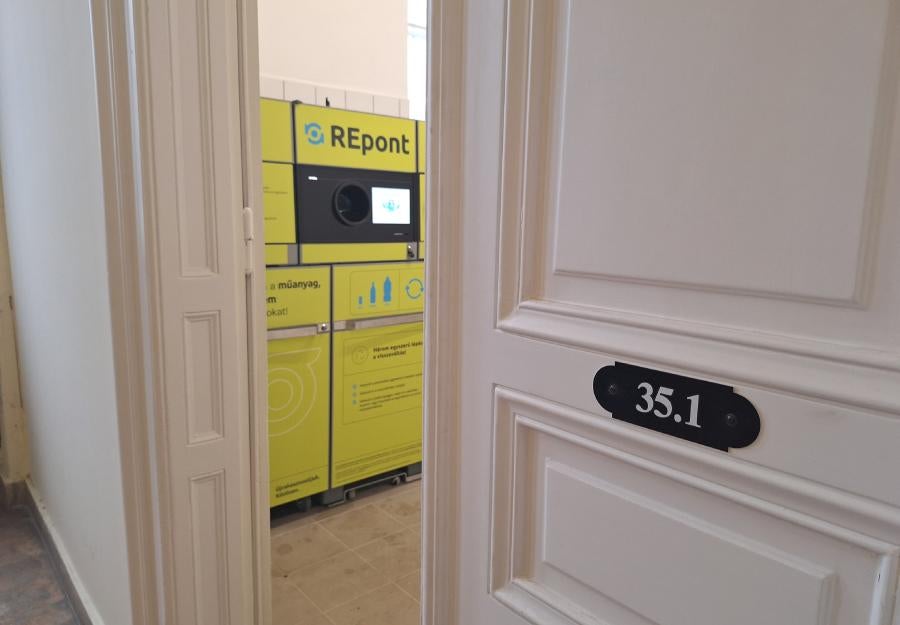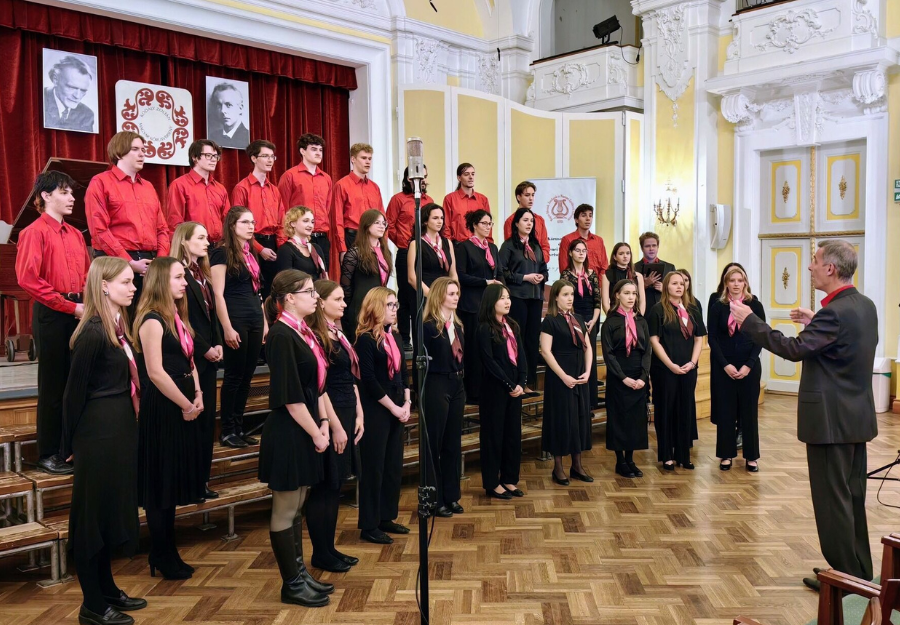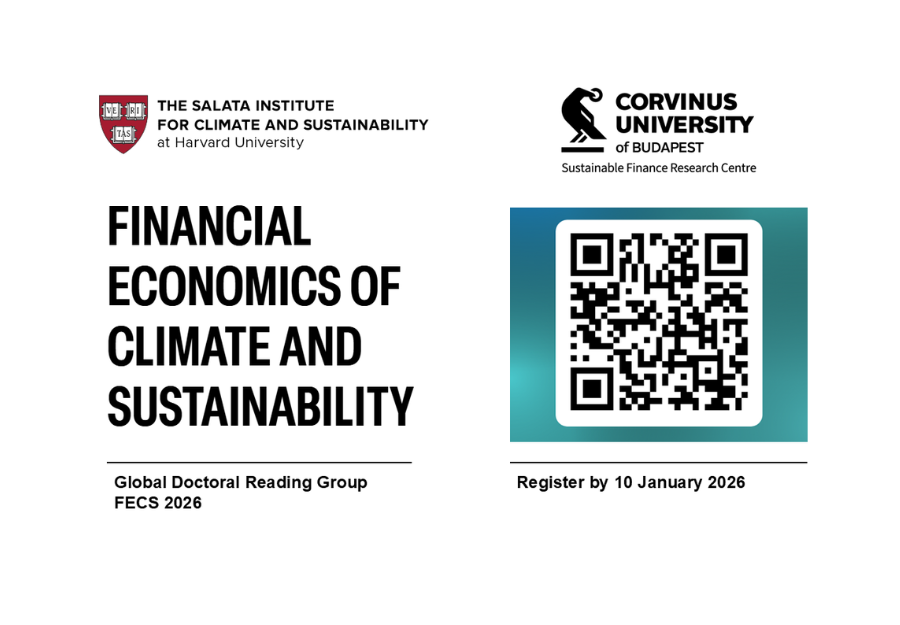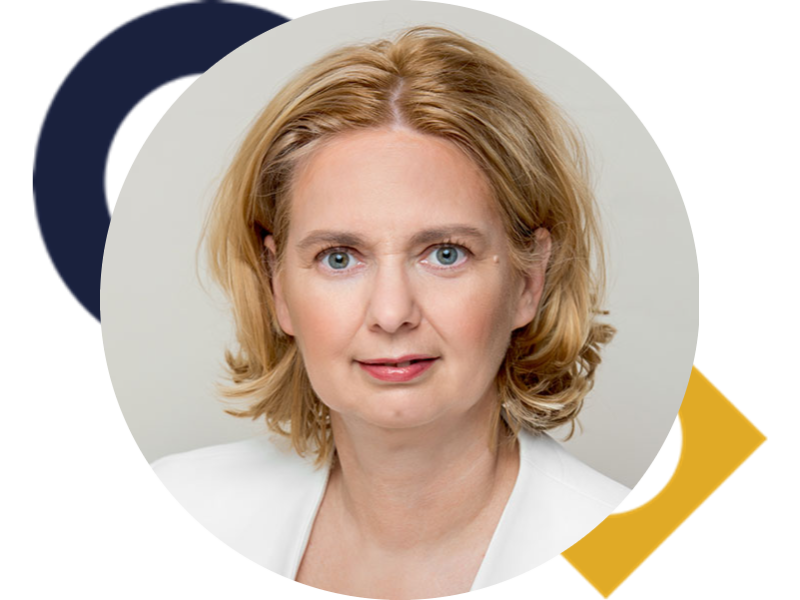
New REpont recycling machine arrived at Corvinus
The new MOHU machine is located on the ground floor of Building E, near the Fresh Corner café, in room 35.1.
The goal of the Dean for Sustainability is to continuously improve the sustainability of the University’s operations and to comprehensively represent sustainability considerations in the University’s educational, research, and third mission activities, as well as in its services. The Corvinus University ERS (Ethics, Responsibility and Sustainability) Hub platform was established under the supervision of the Vice Rector for Academic Development to coordinate projects and initiatives related to ethics, responsibility and sustainability at the university level, as well as to provide an open platform for their extensive dissemination and the involvement of volunteers and supporters.

The new MOHU machine is located on the ground floor of Building E, near the Fresh Corner café, in room 35.1.

Crescendo Corvinus, our university choir, achieved a gold rating at the highest level of the Hungarian choir rating system, the Zoltán Kodály X Hungarian Choir Competition.

Learn from leading scholars from Harvard, Oxford, Yale, and other top universities through this international doctoral reading group in climate and sustainable finance.

There’s a surprisingly simple way to cut household energy use: when given reliable information, university students would significantly lower the temperature in their homes. This comes from a recent survey by Corvinus University of Budapest.
The following framework, inspired by the engagement of a wide range of the university community, aims to focus our activities around specific areas, guide our collective thinking for the future and support the effective demonstration of our achievements and the accurate measurement of their impact.
Corvinus University of Budapest is committed to ensuring the principles of sustainability to be a key aspect of all its activities and operation.
In line with the University’s strategy, the University aims to become an international center of excellence for sustainability by 2030 by:
– educating empowered professionals committed to sustainability,
– producing scholarly work that makes a difference in addressing and solving sustainability challenges,
– collaborating with people and institutions in the academic and business communities, civil society as well the public sector that work towards similar goals,
– making a meaningful impact on its social and economic environment, through the pursuit of its activities.
The University also aims to create an inspiring, welcoming and supporting environment for all University citizens, to strengthen the community of the University and contribute to a significant reduction of its ecological footprint and negative environmental impact.
The University aims to harness the potential inherent to its education activities in a way that incorporates as well as specifically targets issues around the theme of sustainability/ERS. Particular attention shall be paid to the development of curricula, programme design, teaching methodologies and stakeholder engagement as well as the knowledge and sustainability/ERS related skillsets of teaching faculty.
Proportion of programs which have at least one sustainability/ERS course in the program schedule (at all levels (BA-MA: compulsory courses; PHD–MBA: elective courses) and all programmes)
The university aims to ensure that all students take at least one sustainability/ERS course during their studies at Corvinus University. For all courses, sustainability/ERS related principles and indicators should be included in the course outcome competences.
The university aims to steadily increase the number of teaching faculty committed to the issue through its education development efforts.
The University aims to increase the number of Extracurricular learning activities that incorporate sustainability/ERS and the number of students participating in them.
The university aims to support experiential and transformative learning methodological innovations for teachers and encourage students to take the initiative (sustainability/ERS projects).
The university aims to re-integrate the alumni community into education as students and supporters as well as external partners.
The University aims at increasing its publication activity and research capacity in relation to sustainability/ERS research, by providing organizational frameworks and encouraging internal and external collaboration, to reach research excellence and impactful research.
Number of citations for the University’s scholarly publications on sustainability/ERS
Number of external stakeholder organisations related to publications
The University aims to increase the generation of knowledge relating to or focusing on topics of sustainability/ERS. Increased scientific output and research capacity are aimed through the encouragement of faculty and students towards engagement with the field of sustainability/ERS.
In the spirit of the sustainability/ERS field, the University involves and encourages its faculty/students to actively participate in collaborative research through interdisciplinary and transdisciplinary research that spans organisational boundaries.
The University aims to become a hub of research excellence in the sustainability/ERS field both in domestic and international contexts, by engaging in research collaborations that connect various types of stakeholders and networks.
The University aims to create an adequate supporting framework for its sustainability/ERS research goals, by providing proper administrative background, funding and incentive infrastructure that enables research excellence.
The University aims to prioritise impactful research, by promoting projects which go beyond scholarly impact and generate tangible value for stakeholders, both within and outside the sustainability/ERS field.
Our goal is for all operations of the University to reflect responsibility and sustainability/ERS towards external and internal stakeholders, and to serve as an example for others. The University establishes and maintains close and extensive partnerships and collaborations with a wide range of stakeholders including companies, community partners, government actors as well as staff, students, and alumni for the sake of advancing sustainability/ERS and creating true social impact. The University actively tries to influence actors and stakeholders within its eco-system that are not yet adopting responsible and sustainable strategies. The University aims to both support and learn from universities and schools that are more advanced in terms of their sustainability/ERS efforts. In its communication activities towards external as well as internal stakeholders, the University uses the issues of sustainability and responsibility in an ethical and credible manner.
Number of University Citizens participating in collaborative projects with external stakeholders.
Number of external projects with the goal of creating shared value with external stakeholders
The University takes full advantage of its partnerships with other universities by actively facilitating the exchange of knowledge and best practices around the sustainability/ERS field.
The University sets clear standards for guiding relationships with external stakeholders, including corporate partners.
The University employs a conscious approach towards effectively facilitating community engagement in sustainability/ERS related activities.
The University focuses on presenting positive role models and inspirational personal stories related to sustainability/ERS in its communication.
The University develops incentive systems that reward sustainability efforts of citizens of the university.
The university aims to advance sustainability/ERS by collaborating with networks focusing on or providing positions in the sustainability/ERS field.
The University aims to engage its varied stakeholders based on strategic needs as well as grassroots initiatives from within and outside the institution in an impactful way that takes into consideration sustainability goals as well as the inherent transformative effect of community-based initiatives.
The University aims to become a space that facilitates the sustainability/ERS related activities of a number of varied stakeholders. It provides platforms to share ideas and practices related to the field which serve to have a valuable effect on the future society of Hungary in a meaningful way, focusing on reach as well as tangible impact.
The University integrates the principles of sustainability into its operation, organization and the community.
The University develops solutions in the spirit of increasing efficiency and reducing resource consumption in order to decrease its ecological footprint. It emphasizes the use of green energy, the design of energy-efficient buildings, and the optimization of waste management systems. The University utilizes the UI Green Metrics framework comprehensively for impact assessment, with particular focus on the following indicators.
The University provides equal opportunities for all citizens of the university. Special focus must be on the inclusion of foreign students and staff, developing an inclusive infrastructure suitable for students and staff with disabilities and small children, and supporting students from underprivileged backgrounds and ones with other issues related to equity. Specific actions and initiatives shall be included in the Equal Opportunities Plan as well as the Family-Friendly Policy of the University.
Sustainable procurement aims to develop procurement practices that consider environmental, social and economic considerations. To achieve this, preference must be given to environmentally friendly products and services, local producers and socially responsible suppliers.
The University encourages students and staff to live sustainably, by focusing on promoting environmental awareness and healthy lifestyles as well as providing related services.
The University takes into account the financing of sustainability/ERS initiatives and measures during financial planning, thus supporting the implementation of sustainability/ERS goals along designated priority areas within the strategic period.
The Dean for Sustainability is responsible for overseeing the operation of the Ethics, Responsibility and Sustainability Hub (ERS Hub), and for appointing members to the ERS Hub’s Steering Committee. It has seven permanent members and three permanent invited members, plus a non-voting colleague to support its operation. Its work is coordinated by a President elected by the members. The members and the Chair are appointed by the Vice-Chancellor for Academic Development, who also provides professional oversight of the ERS Hub. IT decides whether to accept the initiatives received as actions or projects. The ERS calls in experts for actions and project managers and experts for projects, and provides professional support and monitoring of the implementation of actions and projects. The IT meets once a month.
Once every semester, a half-day forum and brainstorming session, convened and sponsored by IT, to which all university citizens are invited and have the opportunity to contribute. The Agora is an opportunity to hear about past and ongoing actions and projects, and to present new initiatives. In addition, any university citizen can continuously submit new initiatives on the website.

Dean for Sustainability and the President of the Steering Committee

University Professor

University Professor

Dean of CIAS

Chancellor

Associate Professor

Research Associate

Head of Communication

Coordination and administrative support

Member of the HÖK
Az Egyetem fenntarthatósági stratégiájának megújítása folyamatban van.
The Dean for Sustainability and the ERS Hub are planning to launch further actions and will keep University Citizens informed.
In the spirit of deeper engagement and shared value creation, we encourage everyone to contact us with ideas and initiatives on E-R-S, ethics, responsibility and sustainability issues, or to join the actions by using the form below or by emailing us at dean.sustainability@uni-corvinus.hu or ershub@uni-corvinus.hu.